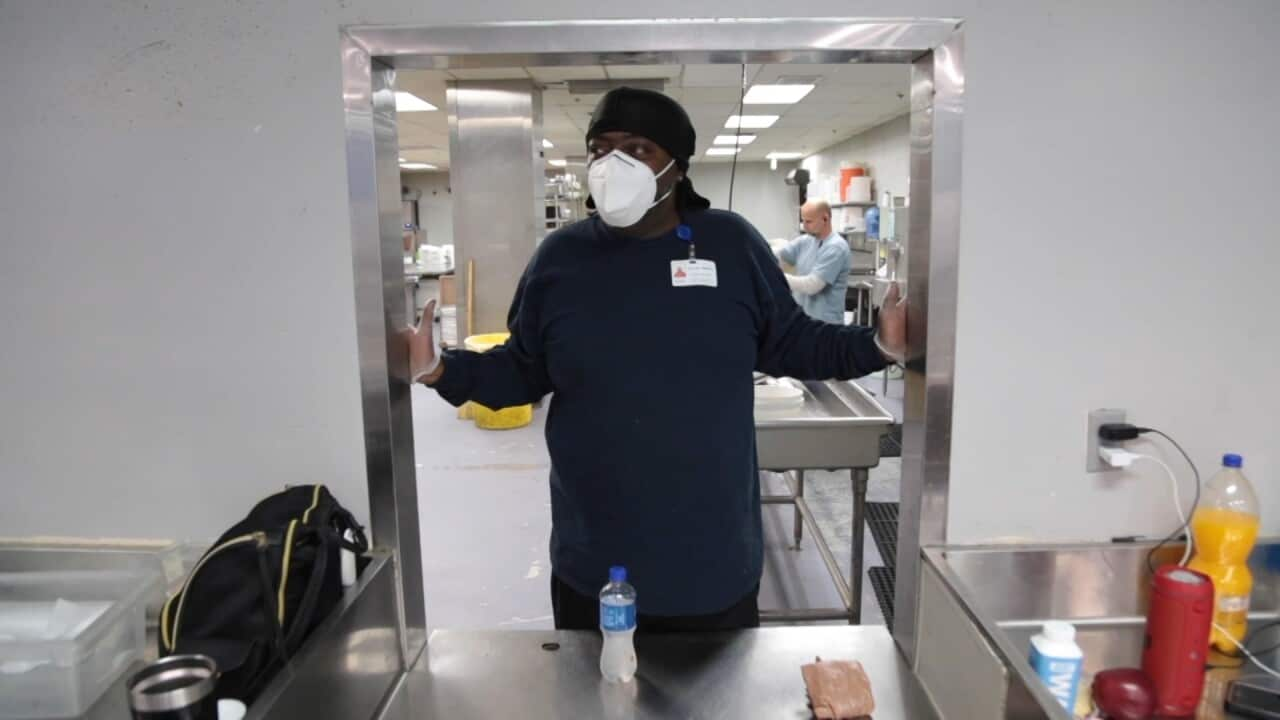Governor Greg Abbott of Texas gave a Dallas salon owner who was jailed for reopening her business and violating lockdown orders the equivalent of a “get-out-of-jail-free” card Thursday, modifying his executive orders on the matter to remove confinement as a punishment.
Soon after, the Texas Supreme Court ordered her release.
The salon owner, Shelley Luther, defied state and local orders for nonessential businesses to remain closed during the coronavirus pandemic when she reopened Salon À La Mode on April 24 and then tore up a cease-and-desist letter sent to her by Dallas County officials.
A judge sentenced Luther on Tuesday to a week in jail and a fine of at least $3,500 US ($5,381 AU), and she quickly became a symbol of conservative outrage over state lockdowns and stay-at-home orders. Armed protesters rallied outside the salon, and former Gov. Sarah Palin of Alaska paid a visit to show her support.
Abbott, who is scheduled to meet with the president at the White House on Thursday, said in a statement that he was eliminating confinement as a punishment for violating the executive orders and doing so retroactively so the shift would apply to Luther’s sentencing.
“Throwing Texans in jail who have had their businesses shut down through no fault of their own is nonsensical, and I will not allow it to happen,” the governor said in a statement.
The state’s top Republicans have found themselves in a jumble of mixed messages in their responses to Luther’s case. Abbott rushed to the defense of a woman who flagrantly violated his own orders. The Texas attorney general’s office had rebuked a local official who had called the governor’s orders vague and had encouraged salon owners to reopen but then called the jailing of Luther excessive and a political stunt.
Texas’ Republican leaders have been battling on many fronts with the Democrats who run Dallas County. Luther was seen as a conservative hero defying overzealous Democratic-leaning officials. The lieutenant governor of Texas, Dan Patrick, went so far as to offer to submit himself to house arrest to help free her.
If the judge “wants to substitute me for her and sentence me to seven days of house arrest so she can go back to work, that’s fine,” Patrick told reporters Wednesday. “I’m fine to take her place in house arrest. I just don’t think she should be going to jail.”
Abbott’s action Thursday was also prompted by two other cases in the border city of Laredo, Texas.
Two women, Ana Isabel Castro-Garcia and Brenda Stephanie Mata, were arrested by Laredo police officers after they offered nail and eyelash services from their residences, in violation of the local emergency management plan. They each faced misdemeanour charges of up to 180 days in jail, a fine or both.
The governor said in his statement that he wanted to ensure that Castro-Garcia and Mata were not subject to jail time.
“As some county judges advocate for releasing hardened criminals from jail to prevent the spread of COVID-19, it is absurd to have these business owners take their place,” Abbott said.











